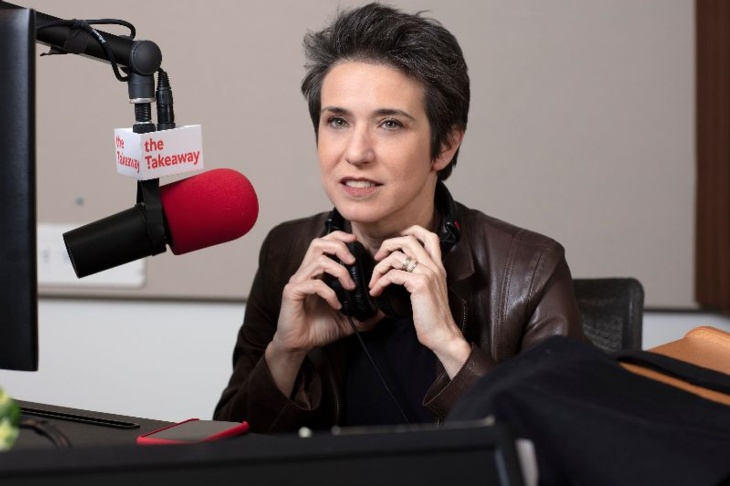
Amy Walter
January 23, 2020 | Paul E. Richardson

Amy Walter
In 2017, political analyst Amy Walter returned to her alma mater, Colby College in Waterville, Maine, to deliver the commencement address. Her advice to the graduating seniors and their families was simple and straightforward.
“The real key to success,” she said, “doesn’t come from getting the right internship. It comes instead from knowing your own values and your own value. You don’t have to know what you want to do with the rest of your life today. But you need to know who you are and what matters to you.”
Walter herself did not actually plan to get into politics or journalism after graduating from Colby. But then she got a few of those “right” internships – right in the sense that they introduced her to the world of Washington and politics. And she said that’s what got her hooked.
It’s a 20+ year addiction she can’t seem to shake.
Today, Walter is national editor for The Cook Political Report, which puts her at the center of nonpartisan analysis of American electoral politics. And, through her regular appearances on PBS, CBS, Fox News, CNN, and other outlets, she regularly offers well-reasoned and balanced takes on the state of our democracy.
On polarization: “The reality is that we agree on more than we disagree. What's driving polarization isn't all ideology or issues, it's fealty and loyalty to our ‘tribe.’ We take our cues on how to react to issues/ideas from the party with which we most closely identify. If one hears a statement they agree with, but find out that it came from a person they disagree with, they will suddenly find a reason to discount it. The irony is that though we are less identified with party than ever (more people ID themselves as independent than Democrat or Republican), we are more partisan than ever.”
On why people vote like they do: “Your lived experience is the most important driver for how you respond to and relate to certain issues. If you grew up in a rural area, you have a different appreciation/concerns about issues than someone who has spent their entire life in a city. If you grew up in an immigrant community, you have a different view on certain issues than someone who has never met anyone who is not native-born. Of course, over time, the issues that matter most to us change. We are more concerned with schools when we have kids of school age. Social Security becomes more important to us at age 55 than age 25.”
We are shaped, Walter insists, by our lived experiences, and that drives our voting and political behavior. And yet, at the same time, polarization and partisanship can blind us to what matters to us most. Indeed, the big story of the 2020 election may by about voters struggling to reconcile “what matters most to us,” with “fealty and loyalty to one's ‘tribe.’”
Just two days after Super Tuesday, Walter will speak on these and other issues related to the 2020 election as part of Festival Boca’s Authors & Ideas series. Join us for what is sure to be an interesting evening of analysis and discussion with one of our country’s most informed and intelligent observers.
Buy books by Festival authors, past and present, at our Festival Bookshop on bookshop.org and not only do you support independent booksellers, but help Festival Boca, which gets a modest commission on all referred sales.